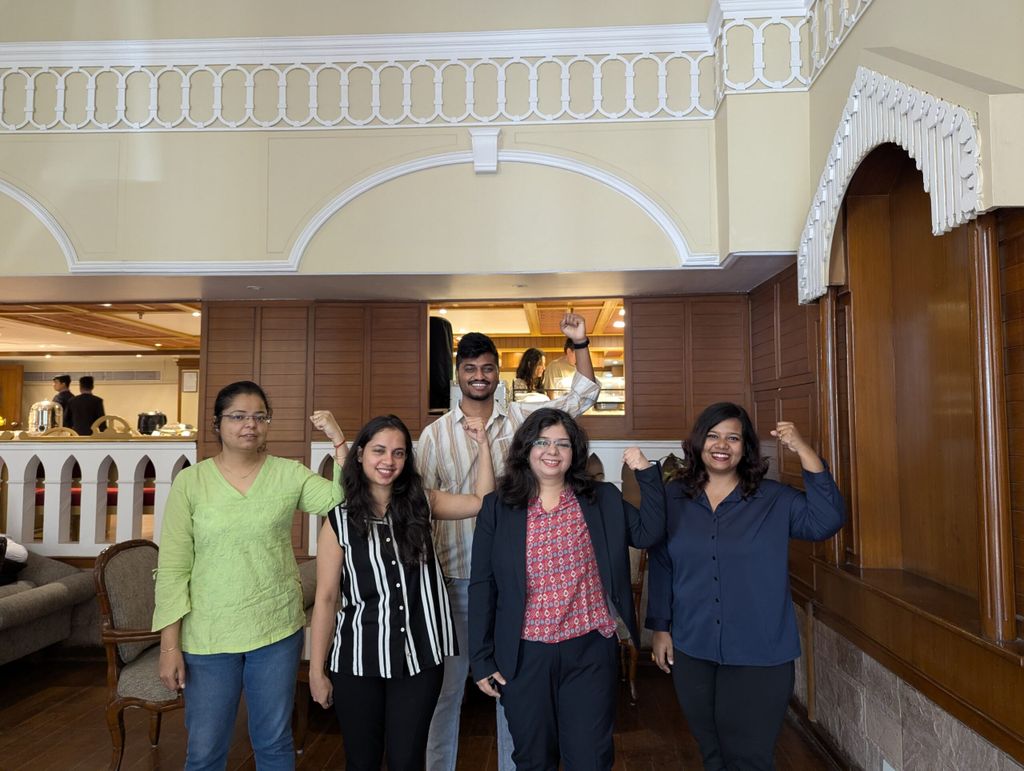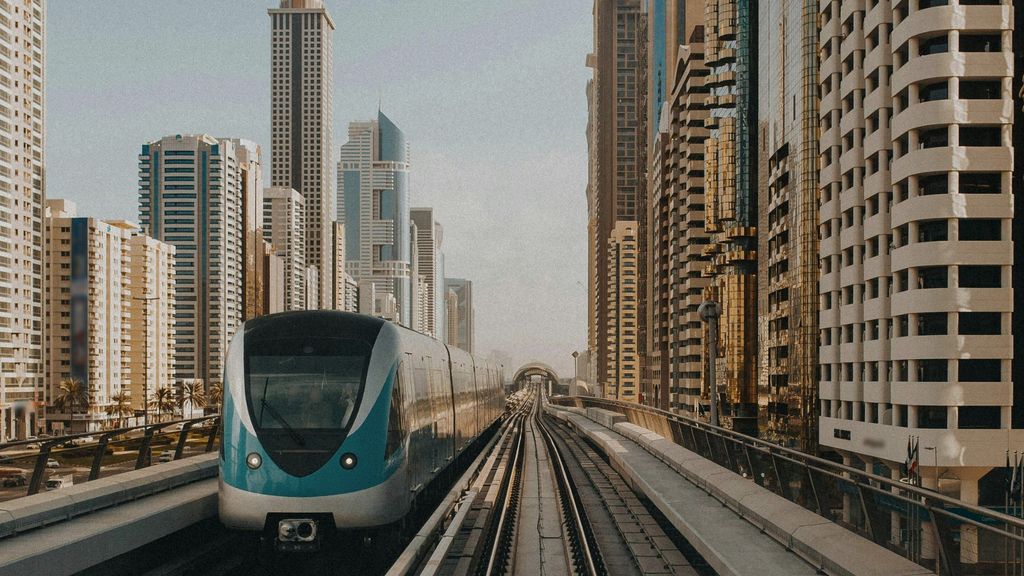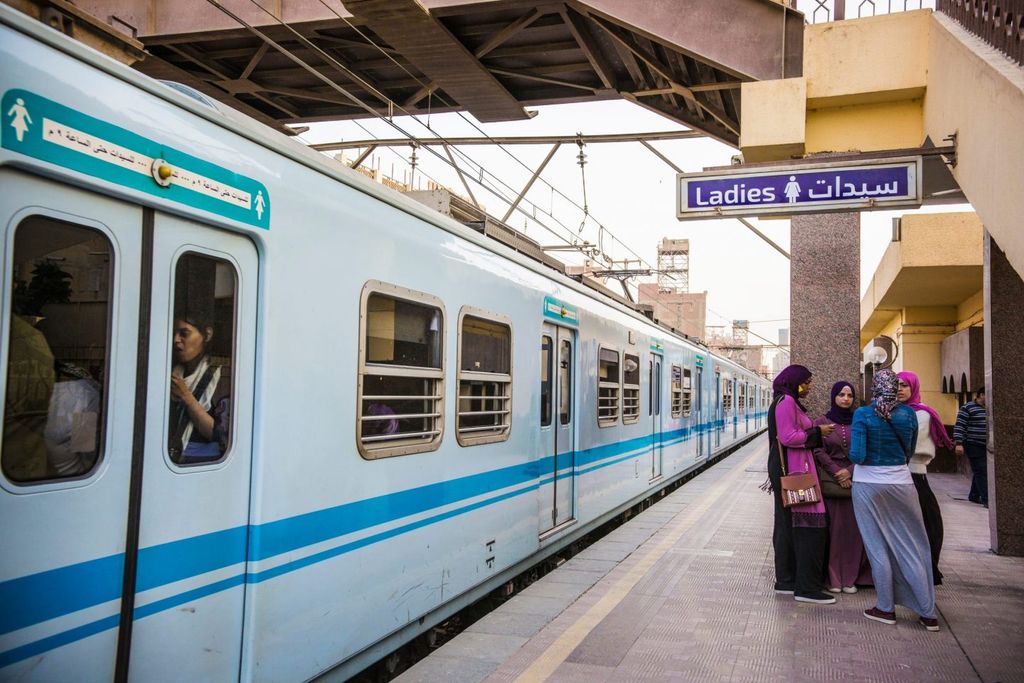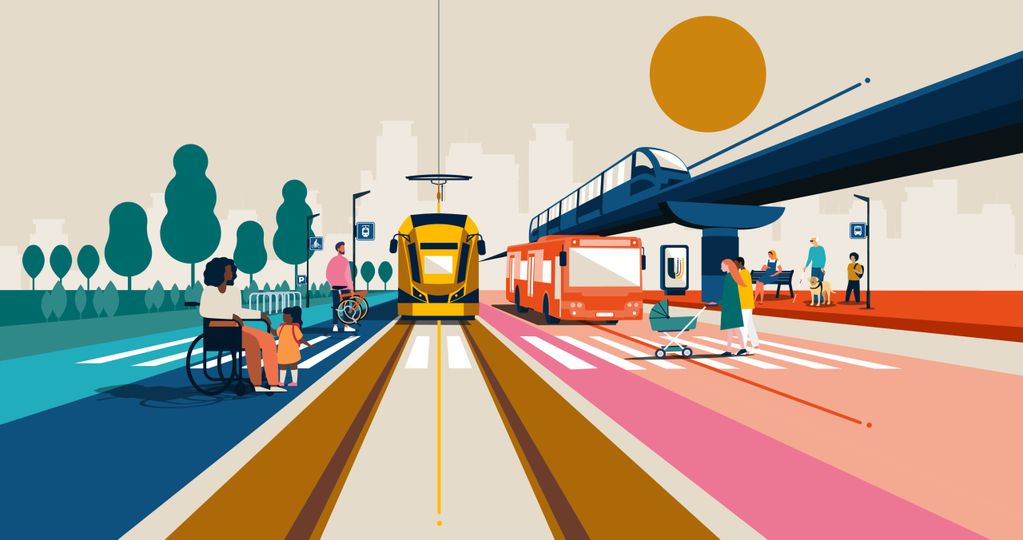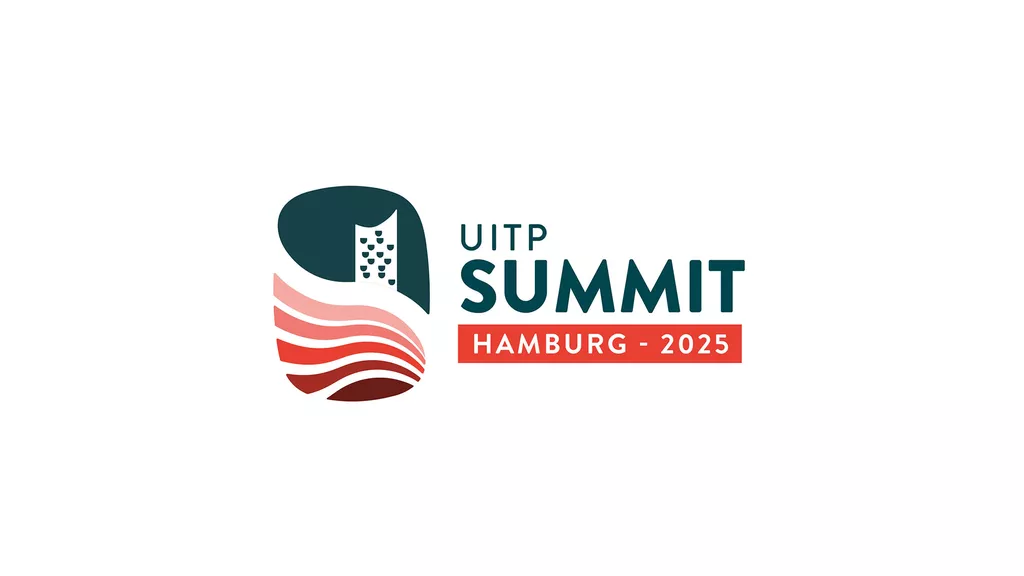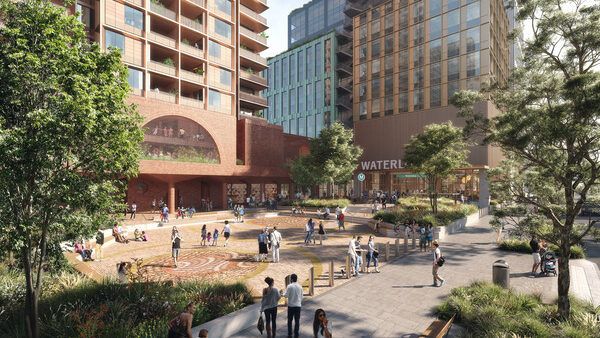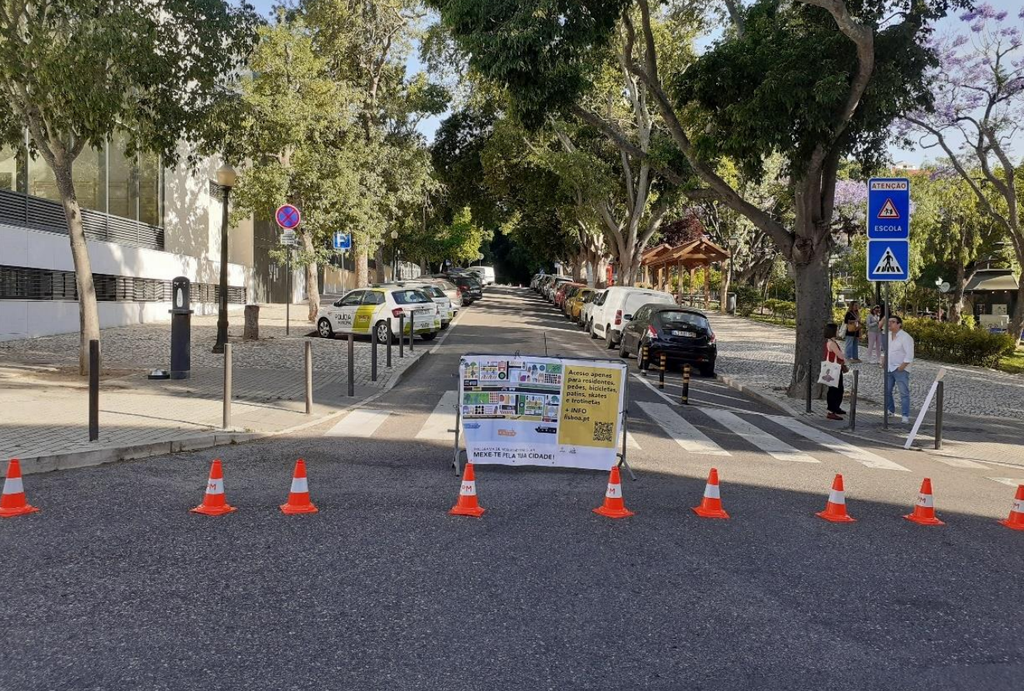
Pushing cars away, pulling communities closer: Lisbon’s school mobility pilot with UPPER
Across Europe, UPPER cities are placing local solutions to make public transport more appealing and accessible. Through 10 cities and over 80 targeted measures, UPPER addresses the challenge of reducing car dependency by developing initiatives that draw people towards sustainable transport options. Among these measures, Lisbon’s new approach to school zones – highlighted in the recent UPPER x SPINE webinar, ‘Improving Public Transport for a Changing Urban Landscape’ – is changing the daily school run into a safer, more active experience for students and families.
In just a few weeks, UPPER partners will gather in Lisbon, Portugal, to review the progress of these measures and plan the next steps.
Putting schoolchildren’s safety first by keeping cars at a distance
Traffic near schools is a major contributor to congestion, especially during morning rush hour. In Lisbon, half of schoolchildren are driven to school, accounting for around 20% of the city’s morning traffic. Lisbon’s measure LIS_01, part of the Mexe-te pela Tua Cidade (Move for Your City) initiative, directly tackles this issue by restricting car access around selected schools during drop-off. By creating car-free perimeters for non-resident vehicles, the city establishes a safer, quieter environment where children can walk, cycle, and interact freely on their way to and from school.
During the webinar, Fernando Rosa, Head of the Mobility Studies and Planning Division at Lisbon Municipality, explained that the aim of this measure is to change how families think about the school commute. This shift aligns with UPPER’s principle of Mobility as a Right, which promotes safe and accessible transport for all. Beyond immediate safety improvements, this measure seeks to reduce illegal parking, ease congestion, and improve air quality around schools. It also supports the long-term goal of creating sustainable habits, helping children and parents view mobility beyond the private car use.
Watch here the UPPER x SPINE webinar on ‘Improving Public Transport for a Changing Urban Landscape’ – Lisbon measure 1.
10 Cities, 80+ Measures: UPPER’s vision for EU mobility
Lisbon’s school zone initiative is only one piece of the UPPER puzzle. The project’s 10 cities are testing a diverse range of measures tailored to local needs but driven by shared goals: increasing public transport use by over 30% and boosting user satisfaction by at least 25% by 2026.
For example, Hannover is piloting a flexible, digital fare system with a “Check-In/Be-Out” technology, making ticketing simpler and more adaptable. In Valencia, efforts are underway to enhance multimodal hubs, improving connections between different transport options. These initiatives contribute to UPPER’s goal of a more accessible, integrated public transport network that meets the diverse needs of European cities.
Data-driven planning and community engagement: the recipe for success
The success of UPPER’s measures lies on data, planning, and strong local engagement. For LIS_01, the city worked closely with parish councils, school communities, and municipal partners to implement the restriction across four selected schools. Looking ahead, UPPER tools, like U-NEED and U-SIM.plan, will help cities track changes in traffic patterns and community impact, allowing them to adjust and optimise these strategies over time based on real-time data. The main aim of the UPPER measures is to create methodological and practical guidelines that can be replicated by other regions facing similar challenges.
Lisbon hosts the 5th UPPER General Assembly
On 19-20 November 2024, UPPER Lisbon’s partners, namely Camara Municipal de Lisboa, Transportes Metropolitanos de Lisboa and CARRIS, will host UPPER’s 41 partners for the 5th General Assembly. This two-day gathering will focus on transitioning UPPER’s measures from development to active implementation and demonstration. Discussions will centre on the steps required to bring each measure to life, how progress will be tracked, and the data needed to support replicability and scalability.
True to UPPER’s ‘leave no one behind’ spirit, the Assembly will be a collaborative space for exchanging ideas and refining strategies, emphasising that cooperation and dialogue are the keys to meaningful, lasting impact.
UPPER tackles big mobility challenges with local measures
Want to learn more about UPPER’s initiatives? Visit the project website to see how cities are making public spaces safer and public transport easier to use. From Lisbon’s measure on restrict car access in the city to Leuven’s park-and-ride incentives, UPPER cities are building a more connected, greener Europe, one measure at a time.


